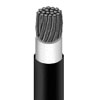Opus Energy, the independent supplier of electricity to UK businesses, has recently signed Halfords, bringingÂ

the total number of UK business sites it supplies up to 50,000.
Now the largest electricity supplier to UK businesses outside the Big Six, Opus Energy has expanded further in the last 12 months:
- Electricity supplied to an extra 10,000 UK business sites in the last 12 months
- 26% year on year growth
Halfords has entered into a two year contract with Opus Energy, with the supply starting in April 2009. Opus Energy will provide 52GWh to the bicycle and motoring specialist chain, across 440 sites.
Opus Energy is attracting a growing number of large corporate customers through the development of a unique wholesale purchasing platform, Opus Evolution.
Opus Evolution gives companies control of their energy purchasing strategies, enabling them to choose how much energy they purchase and when. For example, in a volatile market companies using Opus Evolution have the flexibility to purchase a smaller percentage of their total energy demand over a number of purchases rather than being restricted to one buying opportunity per year. Opus Evolution offers an alternative to a fixed price contract for the first time to this sector,
Andy Taylor, Commercial Manager at Halfords said: “Opus Evolution will be a very useful tool for us. We can control our energy purchasing across the whole portfolio, but also monitor the consumption levels at each site using the online reporting tool. This is really key for us as a retail company with a large number of active sites to manage.â€
Steve James, Commercial Director for Opus Energy said: “We’ve drawn on extensive retail sector experience to provide a tailored solution for Halfords. Opus Evolution will give Halfords control over their energy needs and projected spend, but we as a team can also help them on a day to day basis. They will benefit from a single point of contact at Opus to simplify account management, and as Halfords are a growing company we can help by quickly connecting new sites to their expanding portfolio.â€
On the news that Opus Energy is now supplying 50,000 business sites across the UK,Charlie Crossley Cooke, MD and founder of Opus Energy said: “It’s fantastic to reach this landmark. Customers are our core business and we re-sign a very high number of our accounts as a result of a focus on excellent customer service. We’ve grown the Opus Energy business by listening to our customers’ needs and finding solutions. The Opus Evolution product is a great example of this – a unique answer to a market wide problem. It is this type of innovation which will help us continue to expand into 2009.â€
About Opus Energy
Opus Energy is a leading independent supplier of electricity offering tailor-made solutions for the UK SME and corporate markets. Its market-leading innovations are driven by customer needs and the company is committed to helping businesses reduce their carbon footprint through procurement of energy from cleaner sources.
Opus Energy supplies 50,000 UK business sites across all sectors. Large customers include: Stagecoach, Thorntons, Farmfoods, FirstGroup, Cumbria County Council and Deloitte & Touche.
Over the last two years (between April 2006 and March 2008), 62% of the energy supplied by Opus Energy to its customers came from cleaner, low-carbon sources – 54% from renewable generators and 8% from cleaner Combined Heat and Power (CHP) produced by CHP generators. These CHP generators have been awarded accreditation by the regulator, Ofgem, for producing cleaner, more environmentally friendly power.
Opus Energy’s management team has a 50 percent stake in the business, while International Power Plc (LSE:IPR.L) holds 30 percent and Telecom Plus Plc (LSE: TEP.L ) has 20 percent. With offices in Northampton and Oxford, it employs 200 people.
For further information about Opus Energy, please see www.opusenergy.com For further information about Opus Evolution, please see http://opusevolution.opusenergy.com
About Halfords
The Group employs in excess of 10,500 staff and sells over 10,000 different product lines, ranging from car parts and cycles through to the latest in-car technology, alloy wheels, child seats, roof boxes and outdoor leisure and camping equipment.
Halfords’ own brands include Ripspeed, for car enhancement and Bikehut, for cycles and cycling accessories, including the Apollo and Carrera brands. Two further premium brands were added during 2008; Boardman cycles and accessories, where Halfords has exclusive UK distribution rights, and URBAN Escape for camping equipment. Operating from 455 stores, including four stores in the Czech Republic, 25 smaller format, neighbourhood stores and six standalone cycle stores, Halfords offers a “wefit” service for car parts, child seats, satellite navigation and in-car entertainment systems, and a “werepair†service for cycles. Halfords: shop in store, buy on line, or use the new “Reserve & Collect” service to acquire products on line at www.halfords.com.
Via EPR Network
More Energy press releases














